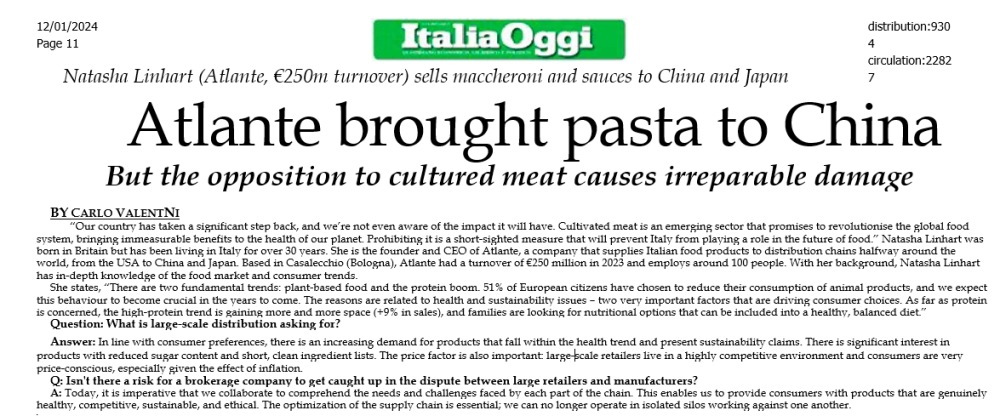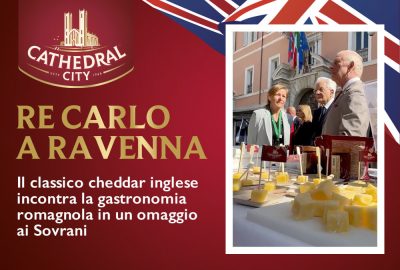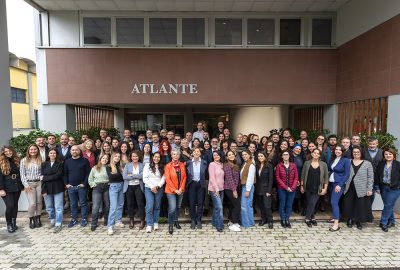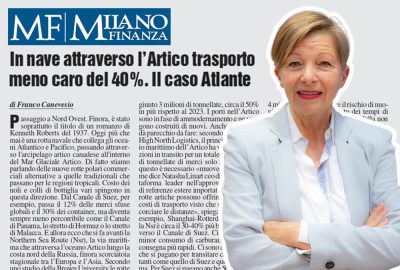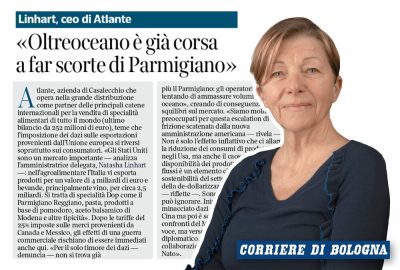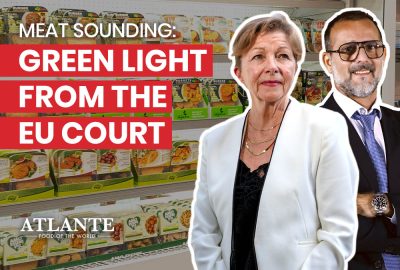Atlante
News
Interview with Natasha Linhart: Global Trends, Sustainability and Italy’s Role in the Future of the Food Industry
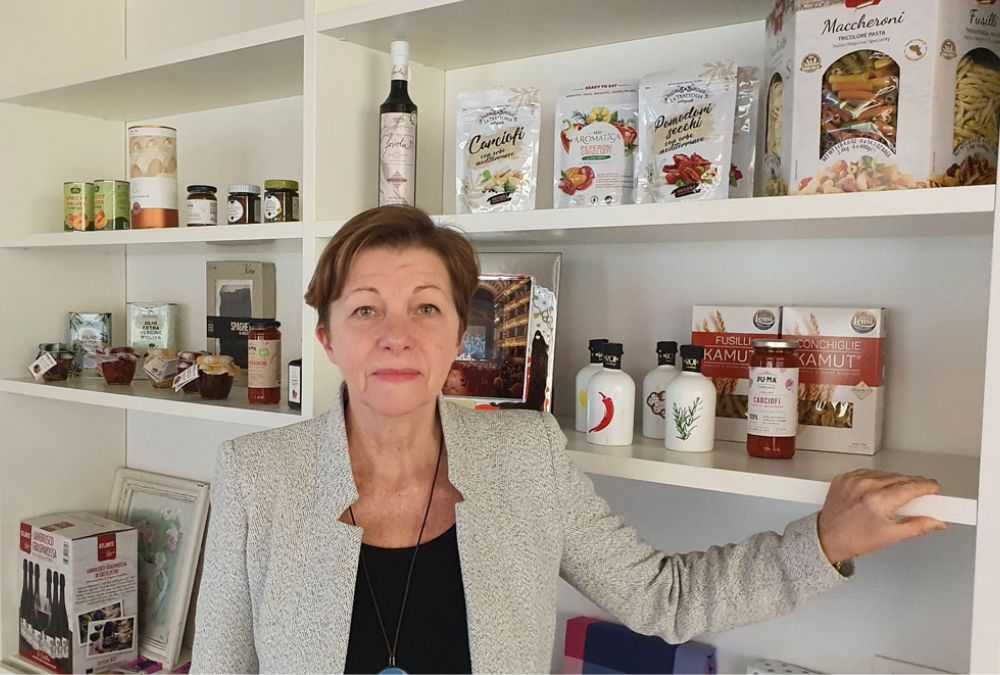
15 January 2024
In the following interview Natasha Linhart, founder and CEO of Atlante, shares her perspective on the ongoing revolution in the food industry.
With over 30 years of experience Linhart focuses not only on how cultivated meat is promising to transform the food system globally, but also takes you through emerging trends that are driving consumer choice, unveiling unique opportunities for the export of made in Italy food.
Atlante brought pasta to China: but the opposition to cultured meat causes irreparable damage
Our country has taken a significant step back, and we’re not even aware of the impact it will have. Cultivated meat is an emerging sector that promises to revolutionise the global food system, bringing immeasurable benefits to the health of our planet. Prohibiting it is a short-sighted measure that will prevent Italy from playing a role in the future of food.” Natasha Linhart was born in Britain but has been living in Italy for over 30 years. She is the founder and CEO of Atlante, a company that supplies Italian food products to distribution chains halfway around the world, from the USA to China and Japan. Based in Casalecchio (Bologna), Atlante had a turnover of €250 million in 2023 and employs around 100 people. With her background, Natasha Linhart has in-depth knowledge of the food market and consumer trends.
She states, “There are two fundamental trends: plant-based food and the protein boom. 51% of European citizens have chosen to reduce their consumption of animal products, and we expect this behaviour to become crucial in the years to come. The reasons are related to health and sustainability issues – two very important factors that are driving consumer choices. As far as protein is concerned, the high-protein trend is gaining more and more space (+9% in sales), and families are looking for nutritional options that can be included into a healthy, balanced diet.”
What is large-scale distribution asking for?
Answer: In line with consumer preferences, there is an increasing demand for products that fall within the health trend and present sustainability claims. There is significant interest in products with reduced sugar content and short, clean ingredient lists. The price factor is also important: large-scale retailers live in a highly competitive environment and consumers are very price-conscious, especially given the effect of inflation.
Isn’t there a risk for a brokerage company to get caught up in the dispute between large retailers and manufacturers?
Today, it is imperative that we collaborate to comprehend the needs and challenges faced by each part of the chain. This enables us to provide consumers with products that are genuinely healthy, competitive, sustainable, and ethical. The optimization of the supply chain is essential; we can no longer operate in isolated silos working against one another.
How is the food trading system changing?
Organised distribution is now predominant and continues to gain market share. Within it, superstores are growing by 9.6%, supermarkets by 9.4 %, and discounters by 9.1%, while hypermarkets show very limited growth.
To what extent are online sales having an impact?
In 2023 online purchases in Italy reached €54.2 billion (+13% compared to the previous year). The incidence of e-commerce on the retail total (online + offline) rises to 13% (it was 12% in 2022). In services, the tourism and transport sectors are driving growth (+30%). However, Italians are traditional when it comes to Food & Groceries, where online sales declined slightly compared to 2022 (-0.5%).
What space is there in the export of Made in Italy food product?
In the first 8 months of 2023, Italian food exports globally grew by 7.6% compared to the same period in 2022, for a value of €36.2 billion (Coldiretti data), despite international tensions. To sustain this positive trajectory in Italian food and wine exports, we need to address Italy’s structural delays and modernise logistics. Existing gaps in these areas pose a risk of limiting export opportunities. If we work on these critical issues, there are still great opportunities to be seized in different markets. Italian cuisine is appreciated all over the world, it is very easy to prepare, and has a remarkably low basic cost: with a half-kilo packet of pasta and a can of tomato pulp, you can feed 4 people for just over €1. In Japan, we created a line of pasta sauces for one of our customers, and it has already grown to 7 products due to high demand. In China we are launching special pasta formats that are very popular and are beginning to convert the Chinese to eating pasta. With a little innovation and adaptation to other cultures, Italian food products have untapped growth potential.
But you often face import barriers in certain countries.
Yes, the exchange of goods in the world lives in a context of ever-changing taxes and barriers. Europe applies duties on certain imported products, such as sugar, to protect its own production. So do other countries, including the United States – so much so that many companies, starting with Barilla, have decided to produce in the States to avoid duties. So there are problems, but luckily there is also huge demand for Italian food, which means we still manage to export.
How do you deal with the problem of ‘Italian-sounding’, or ‘fake’ Italian products?
First of all, by working on quality. An example: grated Parmesan sold in the US has nothing to do with our Parmigiano-Reggiano. Eventually consumers will notice the difference if we keep the bar high on quality. Then, of course, we must tackle fraud. We have set up an internal division to detect and try to beat it.
What are the group’s plans for development in the coming years?
Our business plan is ambitious and anticipates a turnover of €350 million by 2026. We will focus our growth efforts mainly in Italy, the UK, Japan, and China. We plan to strengthen our team from 100 to 130 employees. In terms of R&D, we are already focusing on sustainable products, both in terms of supply chain and nutritional values, promoting minimally processed food. Respect for people and the planet is not only a moral choice but also a key business strategy today.

